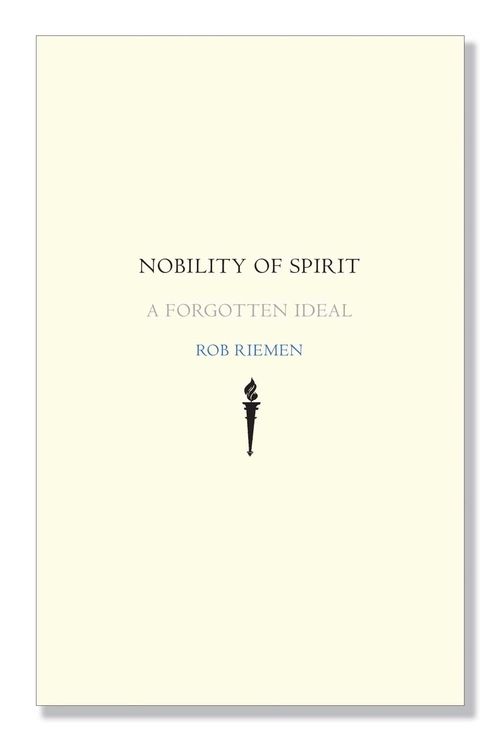
NOBILITY of SPIRIT |
| __________________________________________________________________________________________________________________________________________________________________________ |
| Nobility of Spirit: A Forgotten Ideal by Rob Riemen |
 |
Only humanist values can protect civilisation against a collapse into barbarism and fanaticism - so suggested Thomas Mann in his lectures of the 1920s and in The Magic Mountain, his great novel of that decade. But what followed was Hitler's rise to power and the Holocaust, that exemplar of barbaric, fanatical inhumanity. Mann emigrated, with his family, to the United States, but found no lasting haven of political and cultural freedom there either.
Under McCarthyism the FBI compiled a 1000-page file on the novelist, charging him with "premature anti-Fascism". Mann left America to spend his final years in Switzerland. What is clear is that Riemen sees "leftist intellectuals" - from Sartre to Mailer - as part of the problem. The intellectual ideologues of the 20th century, justifying violence and untruth in the interest of some promised utopia, offer a tragic parody of the Platonic ideal of the philosopher king. This amounts to a betrayal by the cultural elite, whose proper role is to pass on their knowledge of transcendent values, emphasising the distinction between good and evil and safeguarding the dignity of mankind in the light of our spiritual nature. It is surprising, then, to find Riemen co-opting the latter as a standard-bearer for nobility of spirit. Yet Riemen's firm belief in the existence of evil and the ineffable certainly owes little to the earlier Dutch philosopher's "dogma of 'Reason, Virtue and Happiness'". Riemen is on firmer ground when he pauses from stipulating what the "immortal values" of the noble in spirit are and simply offers a picture of the intellectual toil involved in tracking them down. Mann labouring in his study despite the outbreak of a world war or his own son's suicide, Socrates preferring to die rather than stop questioning, Leone Ginzburg refusing to save himself from torture by renouncing his anti-Fascism - each epitomises the faithfulness to thought characteristic of the noble spirit. Spinoza makes a far more plausible poster-boy here: the solitary labourer in the realm of ideas, prepared to follow thought into unexplored and politically dangerous territories - as, perhaps, does Nietzsche, who receives a similarly muddled endorsement in a book largely devoted to the transcendent, timeless and disinterested. Riemen's faith in the art of conversation stands firmly in the tradition of the Renaissance humanists he admires. The determinedly anti-scholarly style of Nobility of Spirit, however, makes it almost impossible to disentangle which words are whose - a problem when one suddenly finds "Nietzsche" bemoaning the death of spirit and morality. But if the execution of Nobility of Spirit leaves something to be desired, nobody, at least, could accuse Riemen of wanting in ambition. Nobility of Spirit is published by Yale University Press. (New Humanist, Jenny Bunker) |
 |
'Be brave':
Recently a Dutch version of the book was published. On September 24, 2009 I was one of the guests for this gathering. Previous to presentation of the first copy to Mr. R. Lubbers, former prime minister of the Netherlands, the author of the book, Rob Riemen, lectured and reflected on European Humanism. He remembered Socrates, Spinoza, Nietzsche and Thomas Mann and made a passionate and convincing plea for classic humanistic values: cultivation of the human soul, the incessant search for truth and the courage to dare to be wise. The book is breathtaking, a treasure and a 'must' for the future. Insight in rise and further development takes care of improved understanding of this life's attitude. At the same time connections between the past, present and future concerning European humanism is clarified. The quality of this attitude to life can certainly play part to achieve more freedom, dignity and truth. |